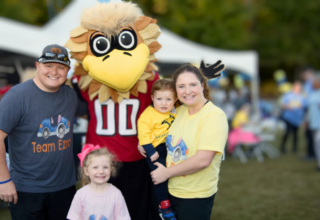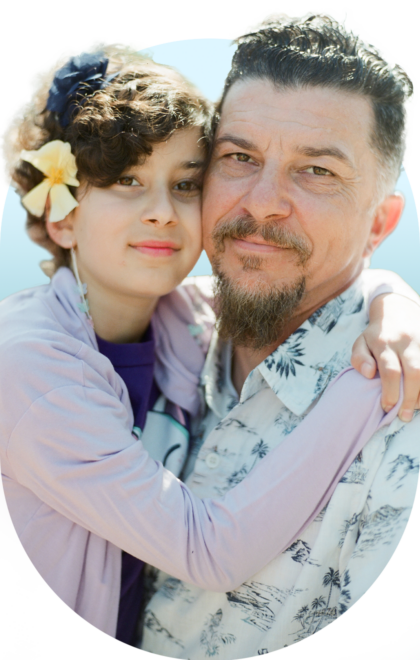
We Need Cures. We Need Action.
One mother shares her perspective about pediatric brain cancer's impact on the entire family.
When your child is diagnosed with a brain tumor, they may be scared and unsure of what's happening. Below are some ideas to help you talk with your child about cancer.
When you talk to your child, you can choose to have someone with you or speak with them alone. The goal is to create a safe and supportive space where your child feels comfortable asking questions and openly sharing their emotions and fears.
It’s important to talk to children using words and ideas they can understand. Here are some ideas about how to talk to children at different ages:
If you notice any big changes in your child’s behavior or are worried about how your child is coping with their illness, ask their care team for help.
A child’s brain cancer diagnosis affects the entire family. Your child’s siblings may not fully understand what’s happening to their sister or brother and will have their own feelings and questions. They need to know they’re not alone and their fears and feelings are normal. Learn more about talking to your child’s siblings.
It’s okay to feel unsure about talking to your child about cancer. Your child’s care team can provide you with tools and suggestions, comfort, and encouragement based on their experience.
Many parents and caregivers also find that age-appropriate videos can help. The Pediatric Brain Tumor Foundation’s Imaginary Friend Society is a series of short, animated videos that talk about cancer-related topics in a kid-friendly way. In the following video, Merlinda the Wizard helps explain the difficult feelings that come with a cancer diagnosis.
One mother shares her perspective about pediatric brain cancer's impact on the entire family.
Virtual Event
1:00 - 2:00 PM EST

